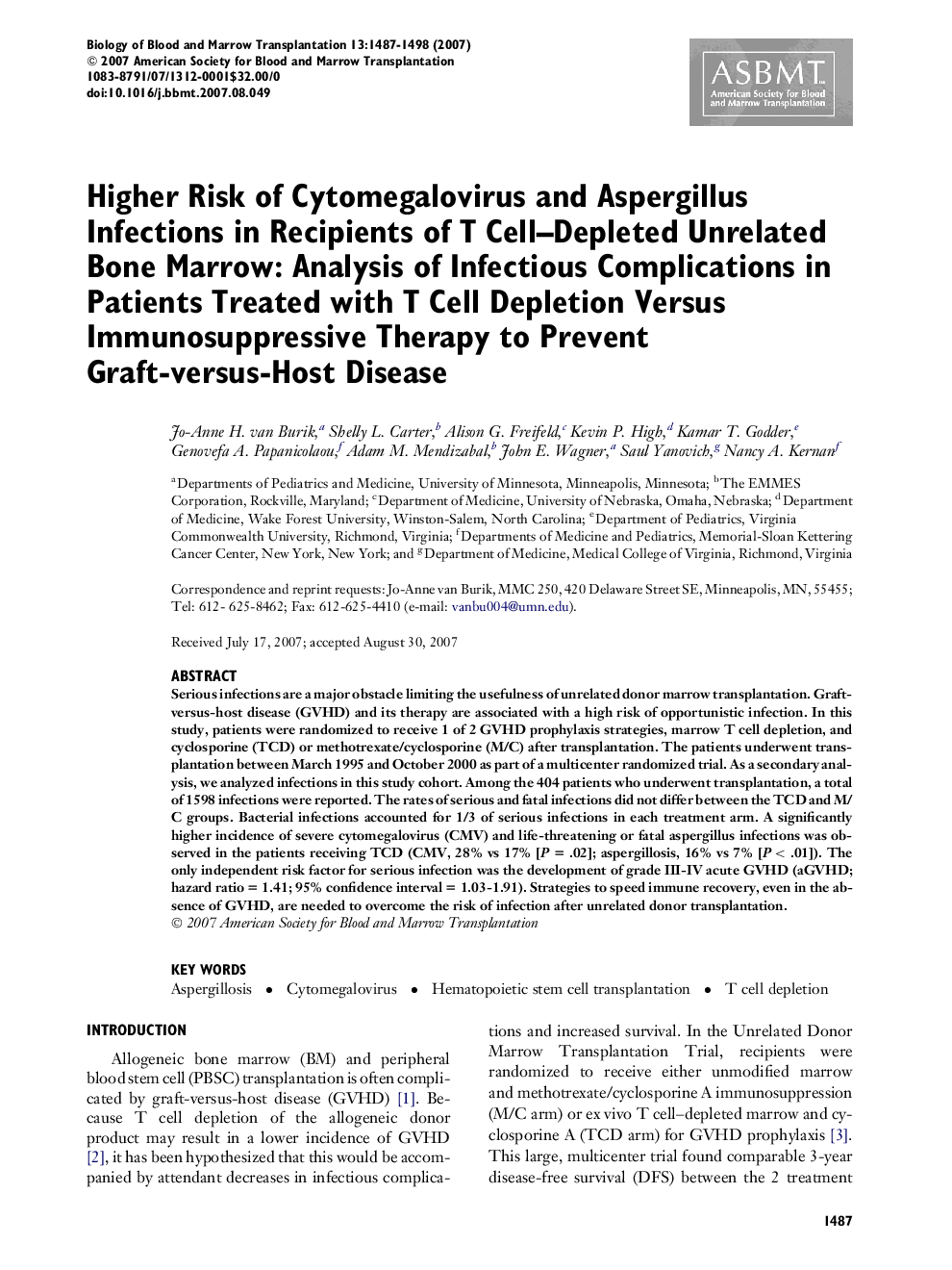| Article ID | Journal | Published Year | Pages | File Type |
|---|---|---|---|---|
| 2104705 | Biology of Blood and Marrow Transplantation | 2007 | 12 Pages |
Serious infections are a major obstacle limiting the usefulness of unrelated donor marrow transplantation. Graft-versus-host disease (GVHD) and its therapy are associated with a high risk of opportunistic infection. In this study, patients were randomized to receive 1 of 2 GVHD prophylaxis strategies, marrow T cell depletion, and cyclosporine (TCD) or methotrexate/cyclosporine (M/C) after transplantation. The patients underwent transplantation between March 1995 and October 2000 as part of a multicenter randomized trial. As a secondary analysis, we analyzed infections in this study cohort. Among the 404 patients who underwent transplantation, a total of 1598 infections were reported. The rates of serious and fatal infections did not differ between the TCD and M/C groups. Bacterial infections accounted for 1/3 of serious infections in each treatment arm. A significantly higher incidence of severe cytomegalovirus (CMV) and life-threatening or fatal aspergillus infections was observed in the patients receiving TCD (CMV, 28% vs 17% [P = .02]; aspergillosis, 16% vs 7% [P < .01]). The only independent risk factor for serious infection was the development of grade III-IV acute GVHD (aGVHD; hazard ratio = 1.41; 95% confidence interval = 1.03-1.91). Strategies to speed immune recovery, even in the absence of GVHD, are needed to overcome the risk of infection after unrelated donor transplantation.
